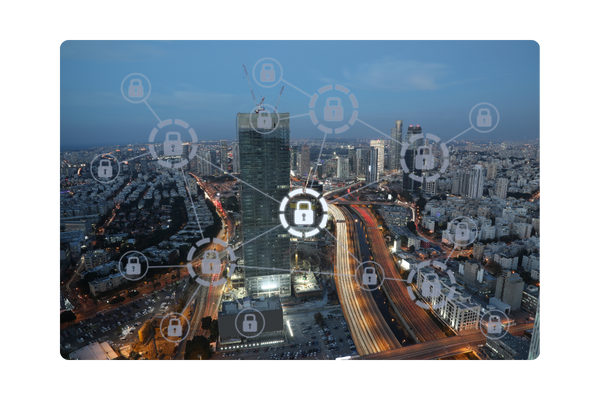Cyberattacks have evolved from a distant threat to an immediate concern for both businesses and individuals. The European Union is increasingly vulnerable, and the impact of these attacks extends beyond financial loss, affecting national security, public trust, and economic stability. In this blog we will explore the growing threat of cyberattacks and how best we can tackle them.
The Growing Cyber Threat in the EU
The EU’s sophisticated digital infrastructure and economic significance has made it an increased target for cyberattacks, which are employing advanced techniques to breach defences and steal sensitive data. Whether it is ransomware attacks disrupting crucial services or supply chain compromises, threats are constantly evolving.
Key threats include:
-
Ransomware: This type of attack encrypts a victim’s data and demands a ransom to unlock it. These attacks are becoming more advanced and are increasingly targetting critical areas like healthcare, energy, and transport.
-
Phishing: This involves attackers sending scam emails or text messages with links to malicious websites. These sites can either install malware or trick users into revealing sensitive information or transferring money.
-
Data Breaches: These occur when sensitive information is accessed or shared without permission. The consequences can be severe, including financial losses, damage to reputation, and identity theft.
High-profile cyberattacks in recent years have highlighted the vulnerability of the EU to cyber threats:
-
Synnovis (2024): A ransom cyberattack for two London hospitals, which resulted in a major IT incident and a significantly reduced capacity to process samples.
-
France Travail (2024): A cyberattack on a French national employment service which exposed the personal data of 43 million people.
Both attacks showed how cyberattacks can lead to serious economic and social damage.
The economic and societal impacts of cyberattacks are extensive.
Besides the immediate financial losses for victims, they can disrupt essential services, erode trust in digital systems, and harm national security. Cybercrime costs the EU economy billions of euros each year, a 2019 report stated that the annual cost of cybercrime to the global economy was estimated to have reached €5.5 trillion. For individuals, the effects can be severe, including financial loss, identity theft, and emotional distress.
Building a Resilient Cybersecurity Ecosystem
Building a strong cybersecurity system requires a multifaceted approach:
-
Invest in Research and Innovation: Staying ahead of potential threats demands significant investment in research and innovation. Developing cutting-edge technologies, such as advanced threat detection systems and artificial intelligence-driven security solutions, is crucial for enhancing the EU's cyber resilience and staying one step ahead of cybercriminals.
-
Develop a Skilled Workforce: A well-trained and skilled cybersecurity workforce is essential for an effective defence. Investing in cybersecurity education at all levels—from primary schools to universities—fosters a society that is aware of cyber threats. Additionally, ongoing professional development for cybersecurity experts ensures they are equipped with the latest skills and knowledge to address emerging threats and challenges.
-
Promote International Cooperation: Cybersecurity threats often transcend national borders, making international collaboration indispensable. Sharing information, best practices, and resources between countries is key to building a unified defence. Strengthening international cooperation through joint cyber exercises, intelligence sharing, and coordinated responses to cyber incidents is essential for protecting the UK's digital infrastructure and ensuring a robust global cybersecurity posture.
The Role of Businesses in Cybersecurity
Businesses play a crucial role is protecting the EU from cyberattacks, they have a responsibility to protect their own digital assets, as well any sensitive data of their customers and employees.
To enhance their cybersecurity, businesses can adopt several practical strategies.
-
Regular Employee Training: Educate staff on phishing scams, password hygiene, and the importance of reporting suspicious activities to build a strong human firewall.
-
Security Audits and Vulnerability Assessments: Conduct regular audits and assessments to identify and address system weaknesses.
-
Access Controls: Implement strong access controls, such as multi-factor authentication, to reduce the risk of unauthorised access.
-
Data Backups and Disaster Recovery: Regularly back up data and have a comprehensive disaster recovery plan in place to ensure business continuity in the event of a cyberattack.
Investing in cybersecurity is not merely an expense; it's a strategic investment in the future of the business. Strong cybersecurity measures are essential for protecting a company's reputation, customer trust, and financial stability. By preventing data breaches and avoiding costly downtime, businesses can safeguard their bottom line. Additionally, compliance with data protection regulations, such as GDPR, is crucial for avoiding substantial fines.
Conclusion
The EU faces serious risks from cyberattacks, which can harm its economy, society, and security. To tackle these threats, a comprehensive approach is needed: investing in research and innovation, building a skilled cybersecurity workforce, and improving international cooperation. Businesses must also implement strong security measures and prioritise cybersecurity.
A strong cybersecurity stance is crucial for the EU's digital future. By understanding risks, investing in prevention, and promoting cyber resilience, we can create a safer online environment. It’s vital for everyone to stay informed about threats and take steps to protect themselves from cyberattacks.
If you are ready to hire some of the top talent in cybersecurity reach out to Jack Walsh, one of our expert consultants:




